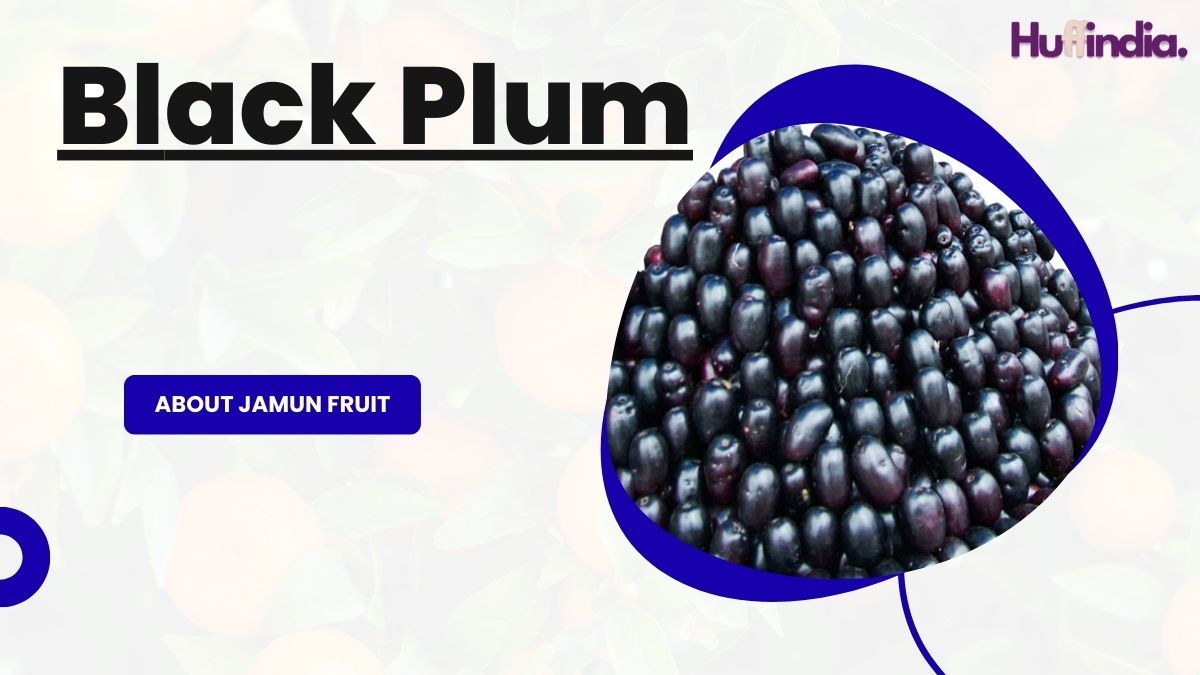Jamun, also known as Indian blackberry or Syzygium cumini, is a seasonal fruit loved for its deep purple color, tangy-sweet taste, and immense health benefits. Rich in nutrients and packed with antioxidants, jamun has always been a part of traditional Indian diets and Ayurveda remedies. However, like any fruit, consuming jamun also has certain drawbacks if not taken in moderation. In this article, we will explore the pros and cons of jamun, its nutritional profile, and how eating jamun can affect your overall health.
Nutritional Overview of Jamun
Jamun is a low-calorie fruit that is rich in essential vitamins and minerals. A 100-gram serving of jamun provides:
- Calories: Around 60
- Carbohydrates: 14 grams
- Protein: 0.7 grams
- Fiber: 0.6 grams
- Calcium, iron, magnesium, and phosphorus
- Rich amounts of Vitamin A and Vitamin C
- Powerful antioxidants like anthocyanins
This impressive nutrition profile makes jamun a superfruit for boosting immunity and supporting overall wellness.
Nutritional Value of Jamun
Jamun is low in calories and rich in vitamins, minerals, and antioxidants. On average, 100 grams of jamun provides about 60 calories, making it an ideal fruit for weight-conscious individuals. Along with carbohydrates, it contains protein, fiber, and essential minerals like iron, calcium, magnesium, and phosphorus. Jamun is also a rich source of Vitamin C, Vitamin A, and anthocyanin antioxidants, which make it beneficial for skin health, blood circulation, and overall immunity.
Pros of Eating Jamun
Controls Blood Sugar Levels
One of the greatest benefits of jamun fruit is its ability to manage diabetes. The fruit contains compounds like jamboline and jambosine which slow down the conversion of starch into sugar, thus keeping blood glucose in check. Jamun seeds are often used in powder form in Ayurvedic medicines for controlling diabetes naturally.
Packed with Antioxidants
The rich purple color of jamun comes from anthocyanins, a group of antioxidants that fight free radicals and protect the body from oxidative stress. These antioxidants prevent premature aging and reduce the risk of chronic diseases.
Improves Digestion
Jamun is high in dietary fiber, which aids digestion and improves bowel movement. It also helps in treating stomach problems like diarrhea, indigestion, and ulcers. Jamun juice in particular is considered a natural remedy for digestive issues and acidity.
Boosts Hemoglobin and Iron Levels
Being high in iron and Vitamin C, jamun is extremely beneficial for improving hemoglobin levels in the body. It supports better oxygen supply in the blood and can be especially helpful in preventing anemia.
Supports Heart Health
The potassium present in jamun makes it a heart-friendly fruit. Potassium regulates blood pressure and reduces the risk of heart disease, heart attack, and stroke. Regular consumption of jamun also helps in controlling cholesterol levels.
Good for Oral and Skin Health
Jamun leaves and bark have antibacterial properties and are traditionally used to treat gum problems and oral infections. For skin health, jamun helps reduce acne, excess oil, and blemishes, thanks to its purifying and cleansing effects.
Cons of Eating Jamun
May Lower Blood Sugar Excessively
For diabetic patients already on medication, excess jamun consumption may cause hypoglycemia (very low blood sugar levels). It is important to consult a doctor before consuming large quantities or medicinal forms like seed powder.
Can Cause Constipation
Due to its astringent properties, jamun may sometimes cause constipation if eaten in large amounts. People with slow digestion should consume it carefully.
Not Advisable on an Empty Stomach
Jamun should be avoided on an empty stomach as its acidic nature may lead to stomach irritation or discomfort.
Possible Allergic Reactions
Some people might experience allergies to jamun, leading to coughing, throat irritation, or skin rashes. Starting with small portions is advisable.
Avoid Before Surgery
Jamun can interfere with blood sugar levels during surgery. Doctors recommend avoiding jamun at least two weeks before any medical procedure.
How to Consume Jamun Safely
To enjoy the health benefits of jamun fruit without side effects:
- Eat fresh jamun in moderate amounts (about one cup a day).
- Avoid eating jamun on an empty stomach.
- Diabetic patients should regularly monitor their sugar levels if consuming jamun.
- Jamun juice and seed powder can be included in the diet after medical consultation.
- Store jamun properly in a cool place to preserve freshness.
Final Thoughts
Jamun is one of the most beneficial summer fruits, offering advantages like blood sugar regulation, digestive support, improved hemoglobin levels, and heart protection. At the same time, awareness of the side effects of jamun—such as the risk of hypoglycemia, constipation, and allergies—is necessary for safe consumption.
When consumed in moderation and at the right time, jamun is a valuable addition to a healthy diet. This superfruit not only enhances wellness but also serves as a natural remedy in traditional medicine systems. For those looking to balance taste and health, jamun is a perfect seasonal fruit to include in your meals.


























